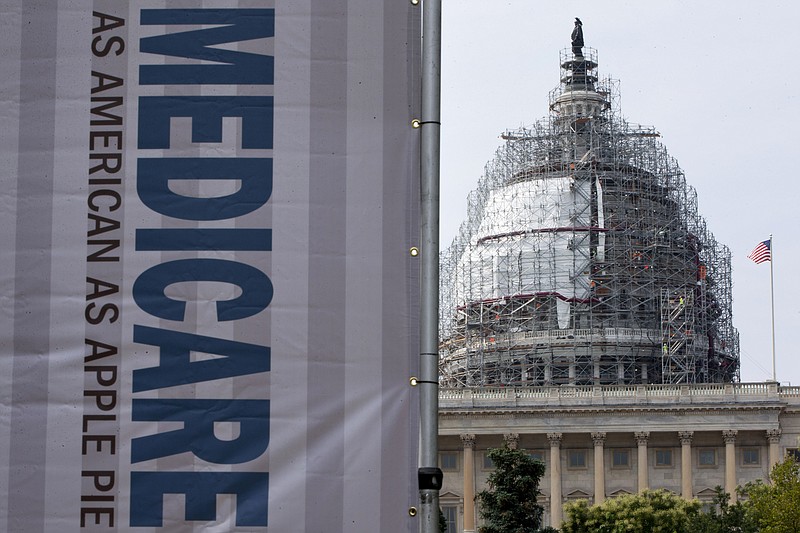America's budget is a mess. The money coming in is less than the amount being spent. Yeah, that means we run in the red. America's debt, the amount we've overspent, is almost $20 trillion. Fixing or reforming this problem is not just a matter of cutting a grant here or eliminating a program over there. Good stewardship should be the duty of every elected official. But on the federal level, our spending is problematic in the area of mandatory spending.
Keep reading. True reforms will impact every single person in the nation.
We must always begin with the fact that a government, whether federal, state or local, has no money of its own. Revenues to operate these governments come from taxpayers, businesses that are licensed, regulated and taxed, products and services that are taxed and licensed, and on and on.
In 2017, it's estimated that the U.S. government will spend $4.073 trillion to meet its obligations and promises. What does the word "trillion" entail?
If you were asked to wait for 1,000 seconds, your wait would be about 17 minutes. If you were asked to wait one million seconds, your wait would be 11.5 days. If you waited one billion seconds, your wait would be 31.69 years. And, waiting one trillion seconds would require the supernatural capacity to pause for 31,688 years.
Folks, our federal government spends a lot of our money.
Sixty four percent of the total budget is allocated to the two programs for seniors, Social Security and Medicare, and Medicaid, the health insurance program for the poor (TennCare in our state), as well as the interest we pay from borrowing money, our debt. For every dollar spent from Washington, D.C., 64 cents goes to these four items. This year, $2.606 trillion in mandatory spending leaves the remaining 36 percent of the budget for every other expense in government.
The 2017 budget for the U.S. military and defense is set at $773.5 billion. Social Security is budgeted at $948 billion; Medicare at $592 billion; and Medicaid at $385 billion.
These figures explain why all should expect discussions about reforms to Social Security, Medicare and Medicaid. To make lasting and significant impacts to a spending problem, not only will those charged with budgeting look to frivolous waste and idiotic programs to eliminate, but to the areas of greatest expense.
And, an obvious problem lies ahead. Two of these programs, Social Security and Medicare, are funded primarily through payroll tax deductions workers contribute throughout their working lives to then be paid in a benefit in the years when that working income has ceased. So, reforming two programs where the federal government has held one's money for decades for its own use is not only a challenge. It will be seen as a promise broken.
Medicaid, health insurance for the poor administered at the state level, completely funded by tax dollars with no co-pays or premiums, has been a central part of insurance coverage through Obamacare. In 2009, Medicaid enrollment was 50.9 million. In November of 2016, the enrollment was 74.4 million with states like Tennessee, Alabama and Georgia rejecting expansion under ACA.
What does all of this mean? It means politicians who are calling for the expansion of Medicaid are going to be at odds with seniors being told their contribution-supported benefits are going to be cut or delayed.
Mandatory spending reforms are the solution to our problem. But a lesson is about to be learned by politicians who've supported making promises using other people's money to create this mess.
Robin Smith, a former chairwoman of the Tennessee Republican Party, owns Rivers Edge Alliance.

